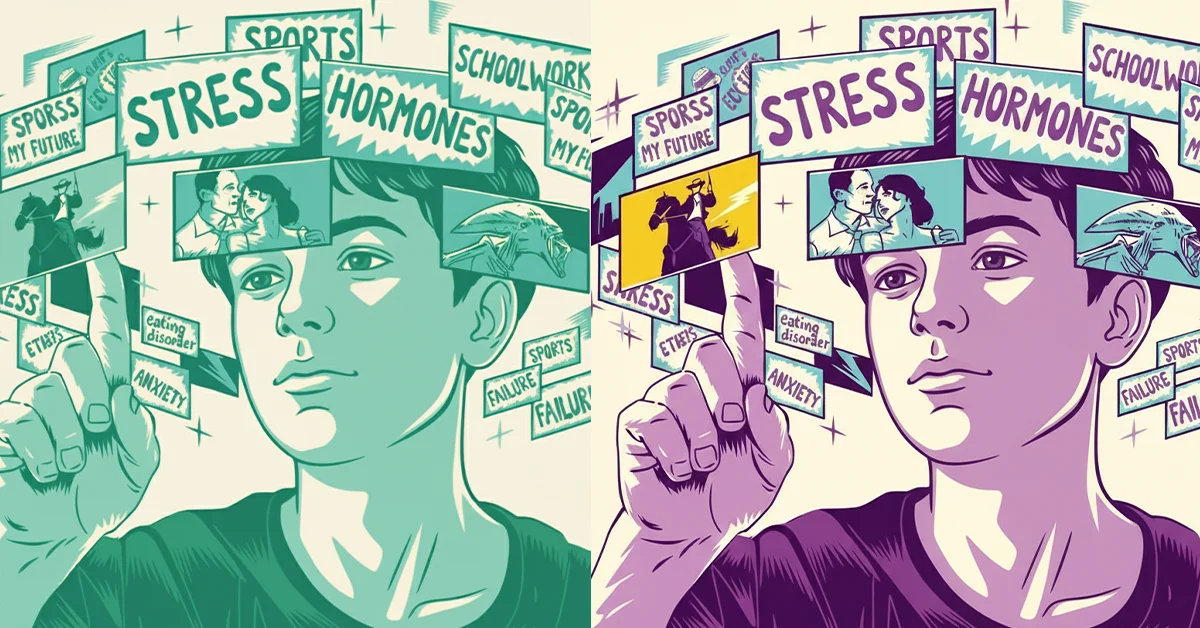Some Thoughts on Teenage Child Development

The parenting landscape today feels overwhelming. We’re drowning in advice, research studies, and competing philosophies about everything from screen time to sleep schedules. But what if we stepped back from the cacophony and asked a simpler question: what truly matters for our kids, for us, for the family in general?
The Adolescent Brain:
Understanding Rather Than Managing
Adolescence often feels like turbulence to parents, unpredictable, unsettling, and something to endure. Yet neuroscience reveals something profound: the teenage brain isn’t broken; it’s brilliantly designed for the work of becoming human.
Dr. Dan Siegel, a leading research neurobiologist, has shown that the prefrontal cortex doesn’t fully mature until around age 25, while the limbic system reaches peak activity during the teenage years. This creates what he calls “emotional spark” combined with as-yet-developing “cognitive control.” Rather than seeing this as a design flaw, Siegel identifies it as evolutionary wisdom. The adolescent brain is primed for the four essential features of this life stage: novelty seeking, social engagement, increased emotional intensity, and creative exploration.
Consider what adolescents actually need, not what we think they should want. Their brains are wired for exploration and risk-taking, not to torment us, but because this is how humans learn the skills necessary for adulthood. The key isn’t to eliminate risk but to help them choose healthy ones: difficult classes instead of dangerous driving, advocating for causes instead of reckless rebellion.
Teenagers are also developing an unprecedented capacity for empathy and contribution. This isn’t the time to shield them from the world’s needs but to connect their emerging sense of purpose with meaningful ways to help. When we honor their search for identity, values, and social status rather than dismissing it as “just a phase,” we partner with their development rather than resist it.
The Emergence of Self:
Trusting the Process
True development isn’t linear progression but emergence, a concept borrowed from biology where complex properties arise from simpler components interacting in dynamic ways. A child’s sense of self emerges through countless micro-interactions, moments of attunement and misattunement, challenges met, and obstacles overcome.
Research on neurobiology demonstrates how integration between different brain regions creates the foundation for emotional regulation, empathy, and self-awareness. This integration doesn’t happen through instruction but through experience, relationship, and what he terms “contingent communication,” where a parent’s response is both timely and appropriate to the child’s internal state.
This emergence requires space to unfold. Like biological systems that self-organize when given proper conditions, children develop their authentic selves not through our management but through our presence, boundaries, and faith in their inherent capacity for growth.
Varieties Of Discipline
Wisdom vs. Control
The word “discipline” has been hijacked by punitive thinking, but its roots lie in learning and structure. Effective discipline isn’t about compliance; it’s about creating predictable frameworks within which children can safely explore their agency.
An abundance of research explains why traditional punishment often backfires. When a child’s emotional brain (the limbic system) becomes activated, the thinking brain (prefrontal cortex) goes offline. Punishment during these moments doesn’t teach; it traumatizes. Instead, we need to help children return to a state of integration before any meaningful learning can occur.
This means distinguishing between absolute boundaries (non-negotiable safety issues) and preferred boundaries that can bend with context and growth. When we involve older children in creating family rules, something remarkable happens: they often propose stricter standards than we would have imposed.
The authoritative approach combines warmth with structure, like a confident pilot navigating turbulence. You acknowledge the reality of what’s happening (“I know this feels scary”) while maintaining clear boundaries (“please stay in your seats while I land the plane”). This isn’t permissiveness masquerading as kindness, nor rigidity disguised as strength.
The Screen Time Paradox:
Navigating the Digital Challenge
The screen time conversation has become unnecessarily polarized, the battle of the ages. But technology isn’t inherently good or evil, it’s a tool that requires intentional use.
Research consistently shows that content quality and engagement style matter more than time spent. Active, creative, or socially connected digital experiences support development, while passive scrolling or inappropriate content can undermine wellbeing. The difference lies in how teens interact with technology, not whether they use it.
While social media correlates with some mental health challenges, the picture is complex. Teen mental health concerns have risen across all demographics, suggesting broader societal factors beyond just digital influence. Rather than demonising technology, we need to teach teens to recognize when their digital habits support or undermine their flourishing.
Remember that your teenager’s relationship with technology is still developing, just like every other aspect of their identity. Rather than viewing their phone use as a battleground, parents should consider approaching it as an ongoing conversation about values, boundaries, and self-awareness.
Trust that the critical thinking skills and ethical foundation you’re building in other areas of their life will extend to their digital choices, acknowledge their growing need for autonomy and connection with peers.
When problems arise, and they will, your calm, consistent guidance around digital wellness teaches them far more than any app restriction ever could. Most importantly, model the kind of intentional technology use you hope to see from them.
They’re learning not just from what you say about screens, but from how you handle your own relationship with digital life. Something we could ALL be better with!
Evidence-Based Wisdom:
Listen to the experts, but trust yourself
Research matters, but it’s only one leg of a three-legged stool that also includes clinical expertise and family values. Evidence-based parenting doesn’t mean following every study blindly but integrating the best available knowledge with our understanding of our particular children and circumstances.
Current research on neuroplasticity offers profound hope: the brain remains capable of growth and change throughout life. Past experiences shape us, but don’t determine us. Children who have experienced trauma or challenges can still develop secure attachment and emotional resilience when provided with consistent, attuned relationships.
Sometimes, evidence-based parenting simply means doing the best we can with what we have. When travelling with children, what truly matters is that they have somewhere safe to sleep and food to eat. The rest (the forgotten toys, the disrupted routines, the imperfect moments) tends to work itself out.
The Deeper Current:
Understanding Emergence
Beneath all these specific strategies runs a deeper current: the recognition that children are not projects to be completed but human beings engaged in the profound work of becoming themselves. Our role isn’t to manufacture outcomes but to provide the conditions (safety, love, boundaries, and respect) within which they can unfold according to their own internal logic.
This doesn’t mean abandoning our authority or wisdom as parents. Rather, it means exercising that authority in service of their emergence rather than our anxiety. It means distinguishing between what we can control (our responses, our boundaries, our presence) and what we cannot (their personalities, their struggles, their ultimate choices).
The integration model shows us that healthy development occurs when different parts of the brain and different aspects of experience work together harmoniously. This integration cannot be forced; it can only be supported through relationship, attunement, and time.
The irony is that when we stop trying to control everything, we often find ourselves more effective at influencing what matters most. When we focus on connection over compliance, structure over punishment, understanding over management, something shifts. Not because we’ve found the perfect parenting technique, but because we’ve remembered what we’re actually here to do: to love these particular human beings well, in this particular moment, with whatever wisdom and patience we can muster.
And perhaps that, more than any strategy or study, is what actually matters. The rest, as they say, is emergence.


